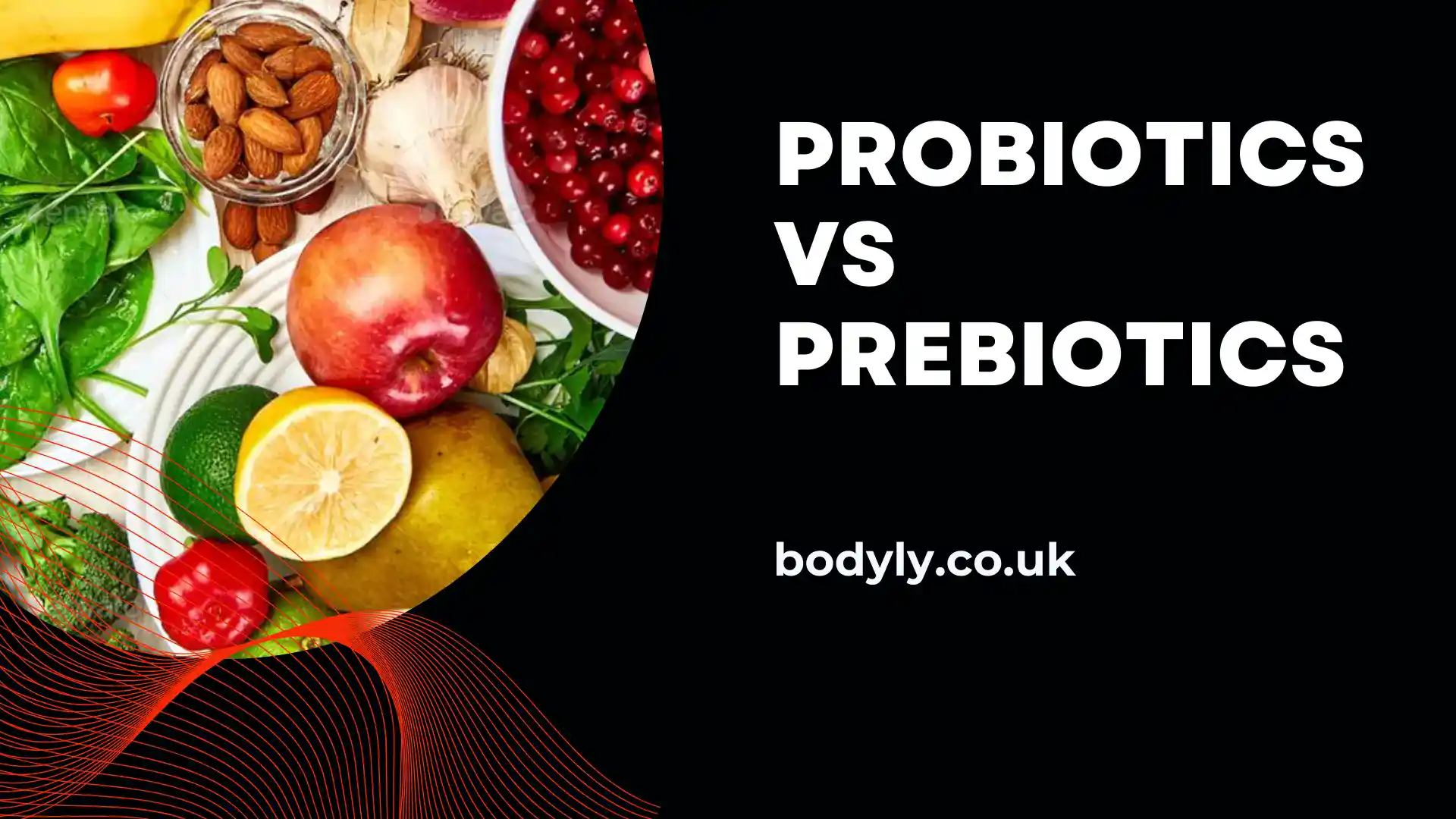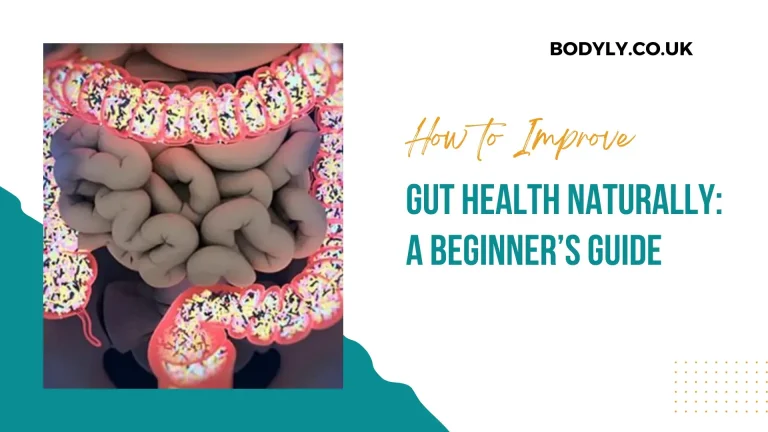Probiotics vs Prebiotics: The Gut Health Showdown of 2024
Okay, confession time: I used to think probiotics and prebiotics were the same thing. Embarrassing, right? But hey, we’ve all been there! It wasn’t until my doctor gave me a stern talking-to about my gut health that I decided to dive headfirst into this world of microscopic gut-dwellers. And let me tell you, it’s been a wild ride!

So, grab a kombucha (or whatever your gut-friendly drink of choice is), and let’s unravel this probiotic vs prebiotic mystery together.
The Gut Feeling: Why Should We Care?
Picture this: I’m standing in my kitchen, staring at a yogurt container, when my roommate walks in and asks, “What’s with the sudden interest in fermented milk?”
Well, folks, it turns out our guts are like bustling cities, home to trillions of tiny microbes. And just like any thriving metropolis, they need the right resources to flourish. That’s where probiotics and prebiotics come in – they’re like the infrastructure and food supply for your internal microbial city.
Probiotics: The Friendly Neighborhood Bacteria
Let’s start with probiotics. These are the good guys, the live bacteria and yeasts that set up shop in your gut and get to work. Think of them as beneficial immigrants moving into your microbial city.
What do probiotics do? Well, from my experience:
- They’ve helped balance my gut (goodbye, bloating!)
- Gave my immune system a much-needed boost (I haven’t had a cold in months!)
- Aided my digestion (let’s just say things are moving smoothly…)
- And get this – they might even improve your mood. No wonder I’ve been feeling chirpier lately!
You can find these little heroes in:
- Yogurt (my go-to breakfast now)
- Kefir (acquired taste, but I’m getting there)
- Sauerkraut (great on hot dogs, who knew?)
- Kombucha (hipster alert, but it’s growing on me)
- Supplements (for days when I can’t face another spoonful of yogurt)
Also read: How to Improve Gut Health Naturally: A Beginner’s Guide (2024)
Prebiotics: The Feast for Your Belly Beasts
Now, onto prebiotics. These aren’t living organisms like probiotics. Instead, they’re a type of fiber that your body can’t digest. But guess who can? Those friendly bacteria in your gut!
What do prebiotics do? Based on my research and personal experience:
- They feed the good bacteria in your gut (like fertilizer for your internal garden)
- Help increase the population of beneficial microbes (more the merrier, right?)
- Support overall digestive health (my stomach’s never been happier)
- May improve calcium absorption (strong bones, here I come!)
Where can you find them? In some pretty tasty places, actually:
- Garlic (sorry, date nights)
- Onions (see above)
- Bananas (nature’s perfect snack)
- Asparagus (fancy AND good for you)
- Whole grains (hello, avocado toast!)
Probiotics vs Prebiotics: The Epic Gut Battle
So, what’s the real difference between probiotics and prebiotics? Let me break it down for you:
Probiotics are like new neighbors moving into your gut-hood. They bring their own unique skills and benefits to the community.
Prebiotics, on the other hand, are like throwing a block party for your existing gut bacteria. They provide the food and energy to keep the party going.
The Plot Twist: Synbiotics
Just when I thought I had it all figured out, I stumbled upon synbiotics. These are products that combine both probiotics and prebiotics. It’s like giving your gut bacteria a complete care package – new residents and a fully stocked fridge! Mind. Blown.
Which Do You Need?
Here’s the million-dollar question: probiotics vs prebiotics – which should you choose? Well, plot twist: you might need both!
From my journey, I’d say consider probiotics if:
- You’ve recently taken antibiotics (been there, done that)
- You’re dealing with digestive issues (my post-taco-Tuesday savior)
- You want to give your immune system a boost (hello, cold and flu season)
And think about prebiotics if:
- You’re looking to support your existing gut bacteria (feed the beasts!)
- You want to improve nutrient absorption (get more bang for your nutritional buck)
- You’re aiming for better overall digestive health (who isn’t?)
My Two Cents (or Should I Say, Two Bacteria?)
Look, I’m no doctor, but in my experience, a balanced approach works best. I try to include both probiotic-rich foods and prebiotic fibers in my diet. It’s like creating a thriving ecosystem in my gut – and let me tell you, my tummy has never been happier!
The Bottom Line
When it comes to probiotics vs prebiotics, it’s not really about choosing one over the other. They’re more like dynamic duos, each playing a crucial role in your gut health. So instead of picking sides, why not embrace both? Your gut will thank you, and who knows? You might just find yourself with a pep in your step and a happy dance in your belly!
Remember, though, everyone’s gut is unique. What works for me might not work for you. If you’re considering adding probiotics or prebiotics to your routine, especially in supplement form, it’s always a good idea to chat with your healthcare provider first. Trust me, I learned this the hard way after a particularly ambitious kombucha-drinking session…
So, are you ready to give your gut the royal treatment? Whether you’re Team Probiotic, Team Prebiotic, or Team Both, your microbiome is in for a treat. Here’s to happy, healthy guts in 2024 and beyond! Now, if you’ll excuse me, I have a date with some sauerkraut. Wish me luck!
Tanveer Quraishi, author of Steroids 101 has extensive experience in the field of bodybuilding and has been writing online on various muscle-building and other health topics for many years now. He is not just interested in bodybuilding but is a great football player too. When he is not writing for his site or training at the gym, he loves to spend his time with this wife and kids.

